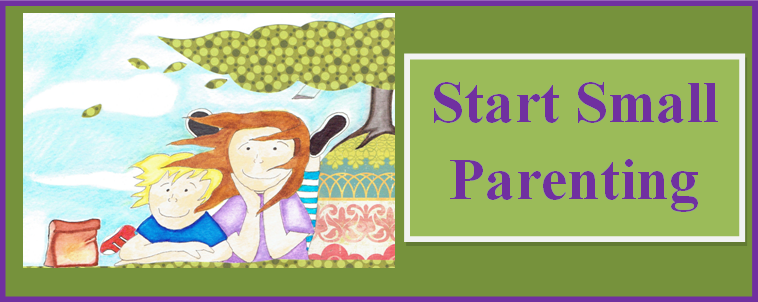 Parenting is a job thrust upon untrained workers. Parents often look to other parents for tools. I call it Over-the-Fence Parenting as I am reminded of my mother leaning over the fence to talk with her neighbor about the latest recipes, mothering issues, and neighborhood news. Later, when I saw films of tribal women talking together as they worked, I would think of my mother at the fence.
Parenting is a job thrust upon untrained workers. Parents often look to other parents for tools. I call it Over-the-Fence Parenting as I am reminded of my mother leaning over the fence to talk with her neighbor about the latest recipes, mothering issues, and neighborhood news. Later, when I saw films of tribal women talking together as they worked, I would think of my mother at the fence.
When my son was a flailing infant and I was a flailing parent, I found incredible help from other parents who had gone before me. We chatted informally at baby groups, the park, mommy-and-me classes, grocery stores.
These places were the “fence” we leaned over.
Child Behavior and “The Fence”
When I asked other parents for help in this fledgling new world, their ideas came fast and furious and I devoured these foreign concepts – teething solutions, potty training, sleep issues, breastfeeding, fever help, and so much more.
When it came to discussions of child behavior and effective ways to build this foundation, though, it was as if confusion reigned. And derision. Disciplinarians wanted nothing to do with permissive parents. Negative judgments separated families into camps based on parenting values. The more serious a child’s behavior issues, the more negative the judgments and the less “fence” advice there was that seemed to help.
At the end of a music class I taught the other day, the mother of a very well-behaved 5 year old shrugged when asked what parenting strategies she used. “He’s always been like that,” she answered. And yet, the loving, dedicated mother who asked the question was being hit by her child as she stood there helpless to get him to listen to her voice to stop.
The mother with the hitting child walked out with a shameful posture, as if she had failed. I felt her humiliation at not knowing how to do “it” – this mystery of creating a respectful family. I imagined the stress at home, the lack of peace when power struggles escalate.
From Shame to Action
Building the foundation of a respectful system doesn’t always come naturally. Where can you turn for more parenting help?
Book Recommendations:
If you are able to take learning from the page and implement it, then there are helpful foundational parenting books out there. Here’s a few I recommend:
Raising Children Compassionately: Parenting the Nonviolent Communication Way (Nonviolent Communication Guides)
by Marshall B. Rosenberg

Positive Discipline
by Jane Nelson, Ed.D.
Parenting for Peace: Raising the Next Generation of Peacemakers
by Marcy Axness
Unconditional Parenting: Moving from Rewards and Punishments to Love and Reason
by Alfie Kohn
How to Talk So Kids Will Listen & Listen So Kids Will Talk
by Adele Faber
Coaching
A parenting coach with a track record of excellent referrals can be very useful, especially if you are not a page-to-action learner. Look for an approach that:
- creates a respectful environment for all family memberrs
- uses internal educational consequences instead of external reward/punishment
- is not focused on probelm/solution or specific situations but a base of usable themes
When to Visit a Professional?
If you are living in an out-of-control family being spun by the manipulative behaviors of a child and disrespect is infused into the core of the family system, then it’s time for a professional family therapist or counselor.
Ask other parents, teachers, and therapists in your area for a recommendation. Go to the Therapist Locator at the American Association of Marriage and Family Therapy website. Sand Play Therapy is one technique that can be very helpful for the child, especially if there is trauma involved or the family is in crisis.
Let’s acknowledge that sometimes as parents, we don’t have the necessary tools. We just might not know how to do “it.” Our challenge is to recognize when the Over-the-Fence advice isn’t helpful and seek another resource.







Yep… I remember when our midwife left our house 8 or so hours after delivery. “You’re not going to just leave him here with us, are you?”. Getting the foundation of respect in place is really all that matters the first few years. With that foundation, everything is possible.